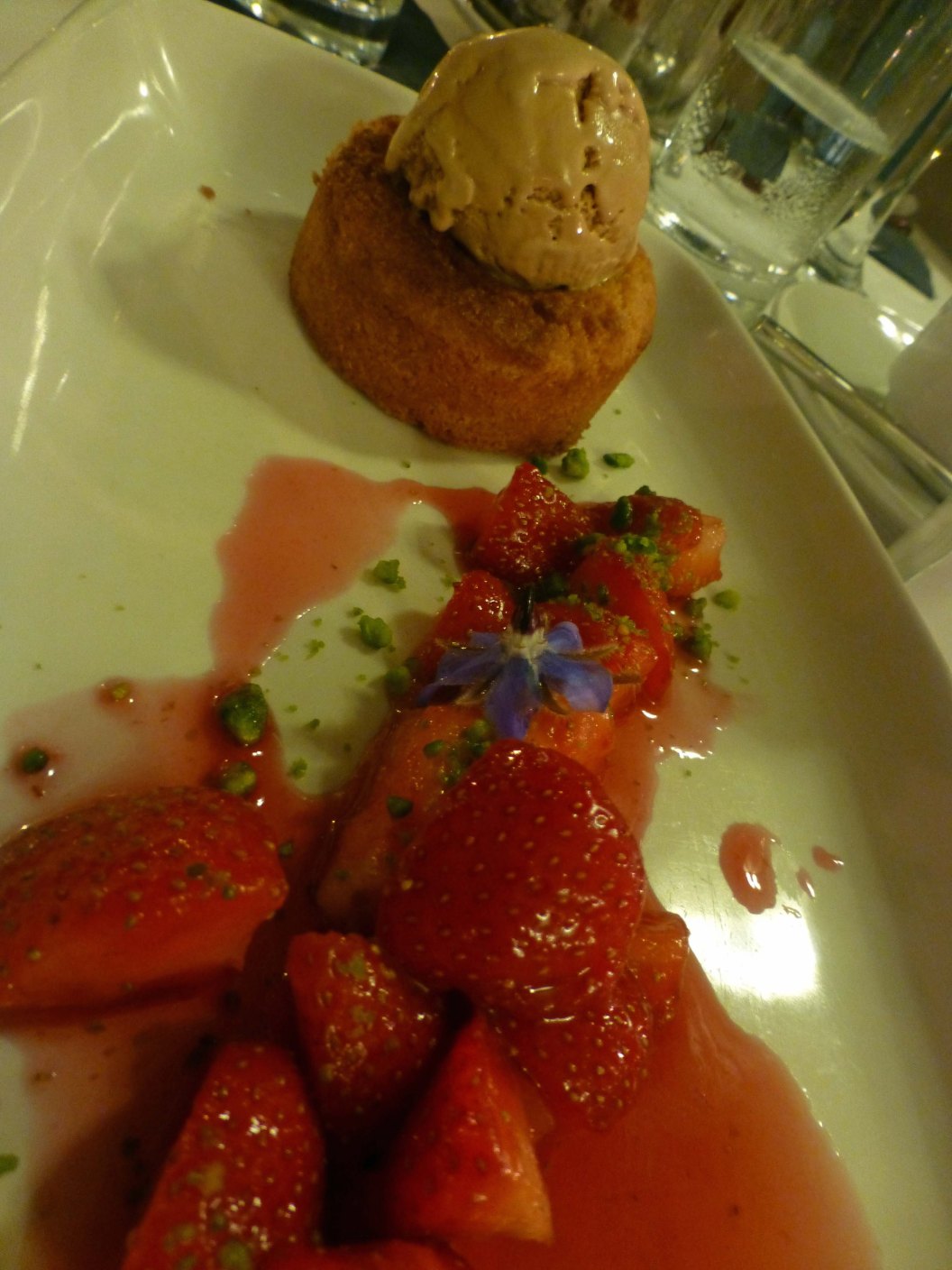STONEWELL RÓS CIDER IS CROWNED SUPREME CHAMPION IN A GREAT YEAR FOR CIDERS AT THE 2016 BLAS NA hEIREANN IRISH FOOD AWARDS
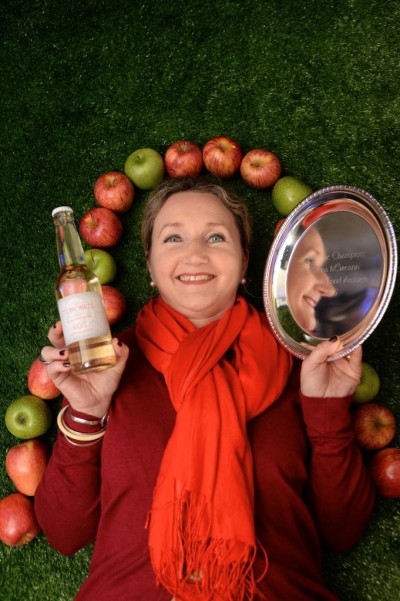
- Cider Crown for Stonewell's Geraldine.
Ciders win big at this year’s Awards…
Stonewell Rós Cider from Cork has beaten off stiff competition from food and drink producers all over the island of Ireland to be awarded the coveted Supreme Champion title of the 2016 Blas na hEireann, the Irish Food Awards, sponsored by Bord Bia.
Geraldine Emerson from Stonewell Cider said “We use all natural ingredients. The Rós cider has a very pure, clean taste. This award is great because it is recognition for all the work that goes into making it. We’re delighted.”
Ciders also made it to the top of the pile in the Best Artisan Category, proudly supported by Bord Bia. In a first for Blas na hEireann there was a tie for the prize which was won jointly by Tempted? Elderflower Cider and MacIvors Plum and Ginger Cider.
Tempted? cider is made by Davy and Janet Uprichard near Lisburn. MacIvors cider is made by the MacNeice family in Armagh.
“Ciders have done really well this year. We have had to expand the number of categories in this area. With the growth of the cider sector on the island, the producers are reacting to customer demand by developing new flavour combinations such Stonewell which is made with rhubarb juice. It’s a stunning drink” said Awards Chairperson, Artie Clifford.
“This has been such a strong year for so many of our producers. The bar gets raised year on year pushing the producers react accordingly and to constantly improve their offerings. This can only mean that the quality of Irish food and drink is world-class.”
Other key award winners included:
Best New Product which was won by The Purple Pantry for Teeling Small Batch and Ginger Marmalade. Best Start-Up was Dublin City Gin. Best Seafood Innovation went to Kilmore Quay in Wexford for their Breaded Haddock Goujons.
The Best UCC Packaging Innovation Award went to Cracked Black Pepper Beef Bites made by the Monaghan-based company, Rucksnacks. Best Packaging Design, also sponsored by UCC, went to Amodeo Salad Dressing by Tuscany Bistro from Annacotty in Limerick. Rogha na Gaeltachta, proudly supported by Udarás na Gaeltachta went to Folláin Preserves, Cork.
Chef’s Larder awards were given to Cavanagh Free Range Eggs, Co. Fermanagh, Fancy Fungi Mushrooms from Wexford for their Umami Paste, Dexter Beef Dripping from Killenure Dexter in Tipperary, Shellfish Pearls from IASC, Cork and Bog Oak Bitters, also from Cork.
Best in Farmers Market Awards included Antrim; North Coast Smokehouse, Armagh; Burren Balsamics for their Armagh Bramley Apple Infused Balsamic Vinegar, Cavan; Ciste Milis for their Raspberry Bakewell, Clare; Anam Coffee for their Burren Seasonal Espresso Blend, Cork; Freebirds Bakery for their Raspberry Brownie, Donegal; Bidlims Moods for their Mint Jelly, Dublin; Hawthorn Lane Piccalilli, Galway; Mocha Beans, Kerry; Pauline’s Pantry, Kildare; Gibney's Garden Preserves, Kilkenny; Cakeface Pastry, Laois; Jenny's Little Kitchen, Limerick; The Green Apron, Louth; Daisy’s Pantry, Mayo; Clew Bay Cookies, Meath; Tullyard Farm, Offaly; Wild Irish Foragers, Tipperary ; Ayle Foods, Waterford; Pure Food Company, Westmeath; An Olivia Chocolate, Wexford; Wild About, and Wicklow for Daisy Cottage Farm.
Best in County Awards were given to Antrim; Tempted? Elderflower Cider, Armagh; Mac Ivors Plum and Ginger Cider, Carlow; The Village Dairy for their The Village Dairy Fresh Jersey Milk, Cavan; Lakelands Dairy for their Tesco Salted Caramel Ice-cream, Clare; Carrygerry House for their Creamy Seafood Chowder, Cork; Stonewell for their Stonewell Ros Cider, Derry; Morelli’s Frozen Yoghurt with Cherry, Donegal; Green Pastures for their Low Fat Creme Fraiche , Down; Clandeboye Estate Greek Style Yoghurt, Dublin; Dublin City Gin, Fermanagh; Erin Grove preserves for their Sour Cherry and Cracked Black Pepper Fruits for Cheese, Galway; Kylemore Abbey, Kerry; Quinlan’s, Kildare; Rye River Brewing, Kilkenny; Mileeven Fine Foods, Laois; Abbey Farm Foods, Limerick; The Green Apron, Longford; Goodness Grains, Louth ;Hilton Foods, Mayo; Carr and Sons, Meath; What’s for Pudding, Monaghan; IGWT, Offaly; Wild Irish Foragers, Roscommon; Gilligan Meats, Sligo; Aurivo, Tipperary; Ayle Foods, Tyrone; Quinn’s Homemade Gelato, Waterford; Pure Food Company, Westmeath; An Olivia Chocolate, Wexford; Irish Country Meats and Wicklow for Gino’s Italian ice-cream.
The winners were announced at an event during the annual Dingle Food Festival on Saturday 1st October, 2016. More than 2500 products were entered in a total of 120 categories. Finalist judging took place at the Dingle Skellig Hotel on Thursday 29th September, 2016. Preliminary judging took place at UCC. Baking was judged at the Baking Academy of Ireland, Dublin.
The Blas na hEireann awards are the biggest blind tasting of produce in the country. The criteria on which the product is judged as well as the judging system itself, which was developed by Blas na hEireann with the Food Sciences Department of UCC, are now recognised as an international industry standard.
PRESS RELEASE



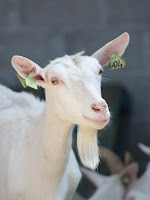





 On the 18th of December 2012, a week before Christmas, the Dingle Distillery started making whiskey. You may well see the results around this Christmas, as the whiskey has now served more than the necessary three years and one day in 700 litre capacity oak barrels. The period time, the oak and the barrel size are all mandatory, we were told on a tour during last weekend’s Dingle Food Festival.
On the 18th of December 2012, a week before Christmas, the Dingle Distillery started making whiskey. You may well see the results around this Christmas, as the whiskey has now served more than the necessary three years and one day in 700 litre capacity oak barrels. The period time, the oak and the barrel size are all mandatory, we were told on a tour during last weekend’s Dingle Food Festival.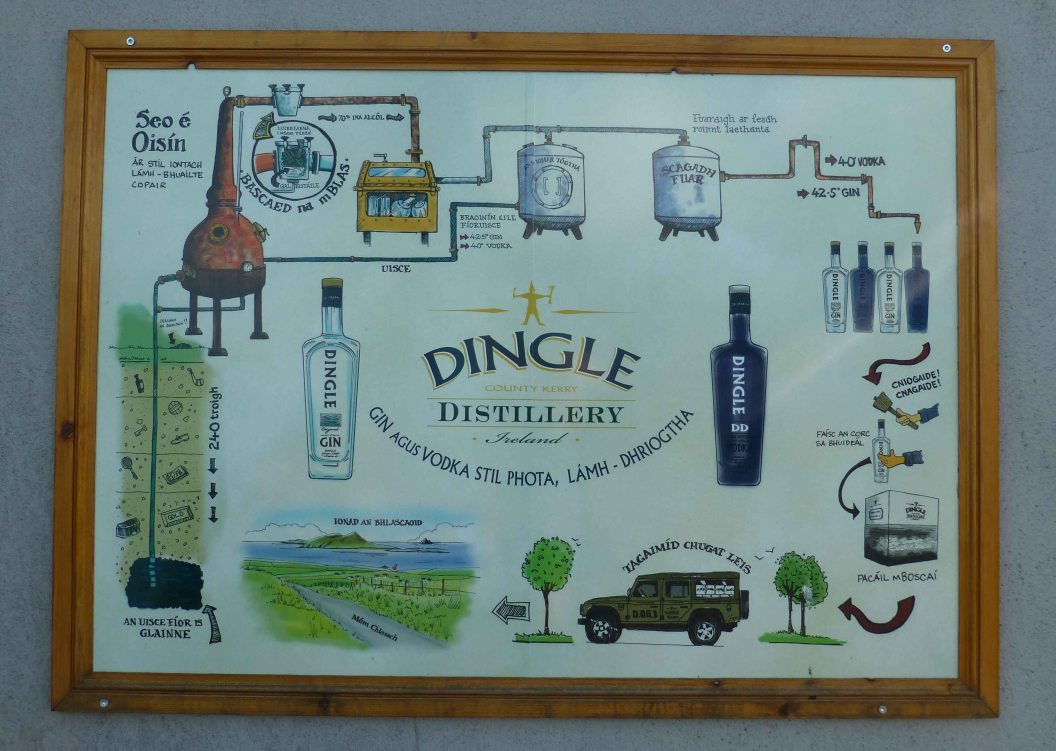
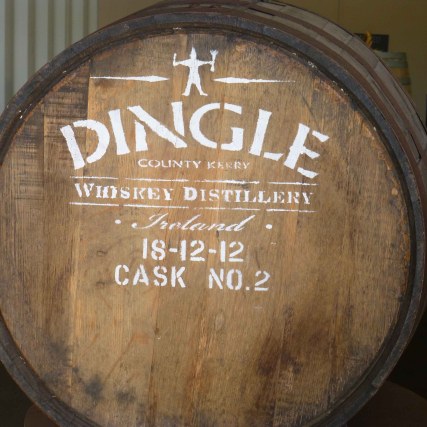
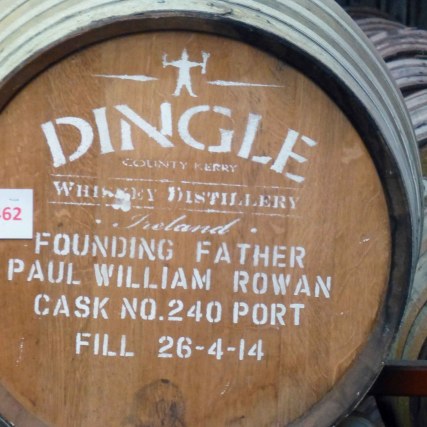


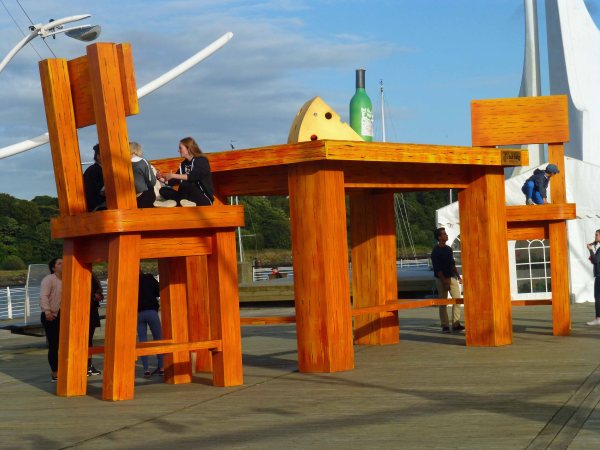
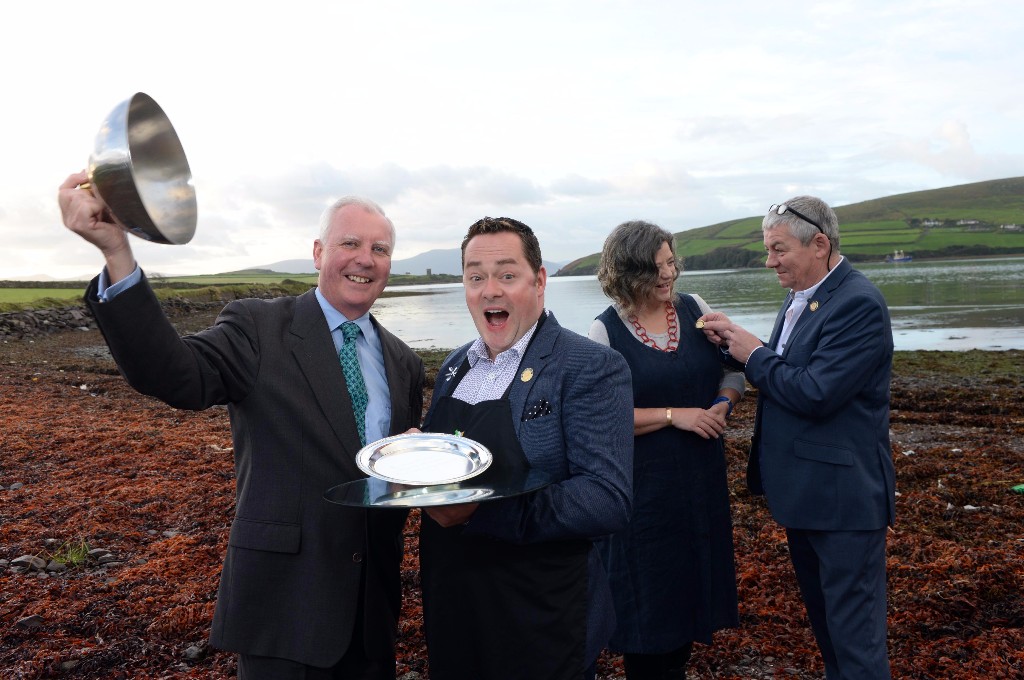




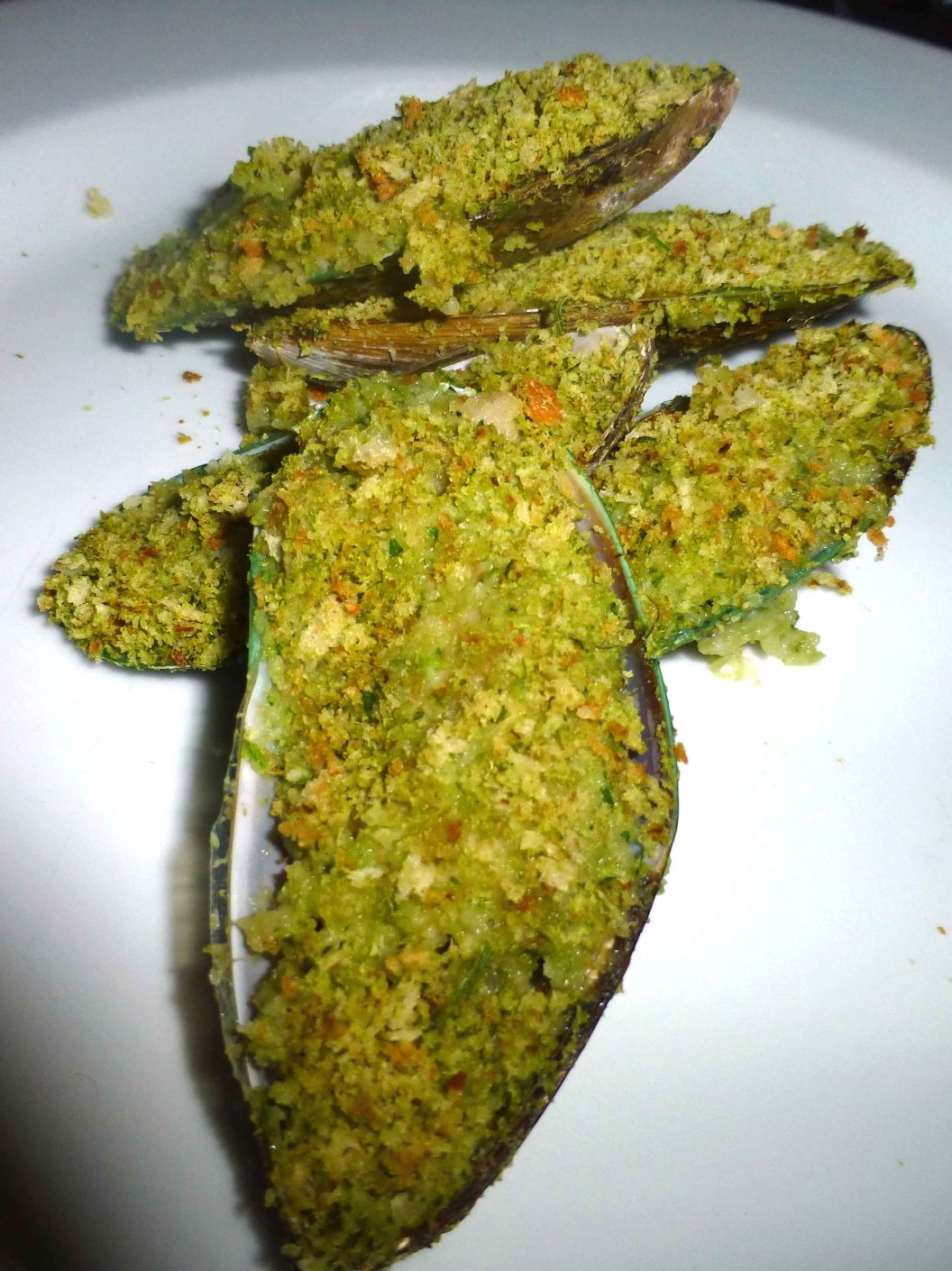
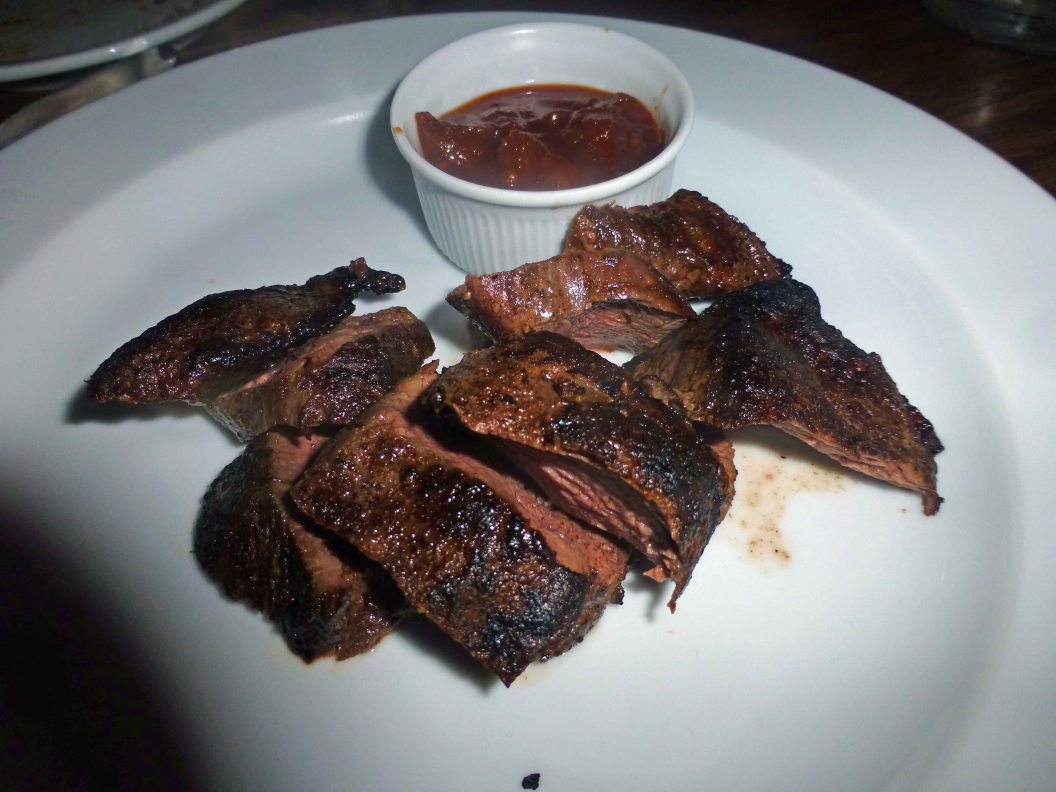
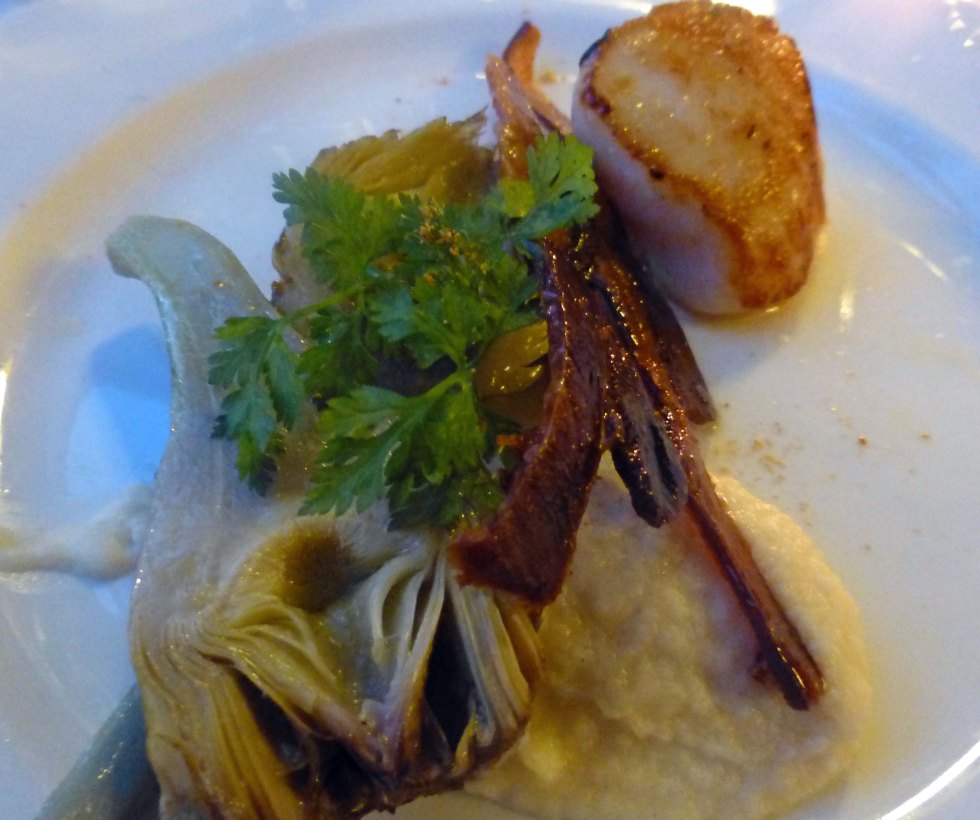
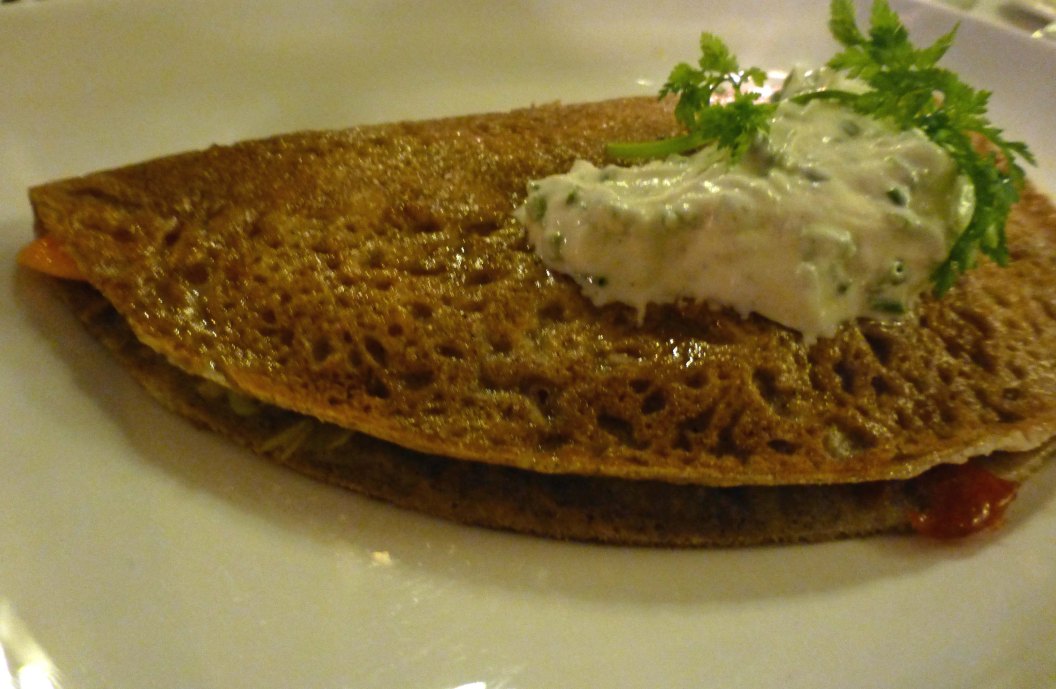 And the artichokes featured in our first dish, the Mise en Bouche: Coquille St. Jacques, Roast Purple Artichoke, cauliflower purée and smoked lardons. Manager Neil Grant said he “allowed” Eric bring the scallop from Kilmore Quay but the artichoke was probably the star of the plate, its gorgeous mild flavour a perfect foil to the scallop and part of an excellent combination.
And the artichokes featured in our first dish, the Mise en Bouche: Coquille St. Jacques, Roast Purple Artichoke, cauliflower purée and smoked lardons. Manager Neil Grant said he “allowed” Eric bring the scallop from Kilmore Quay but the artichoke was probably the star of the plate, its gorgeous mild flavour a perfect foil to the scallop and part of an excellent combination.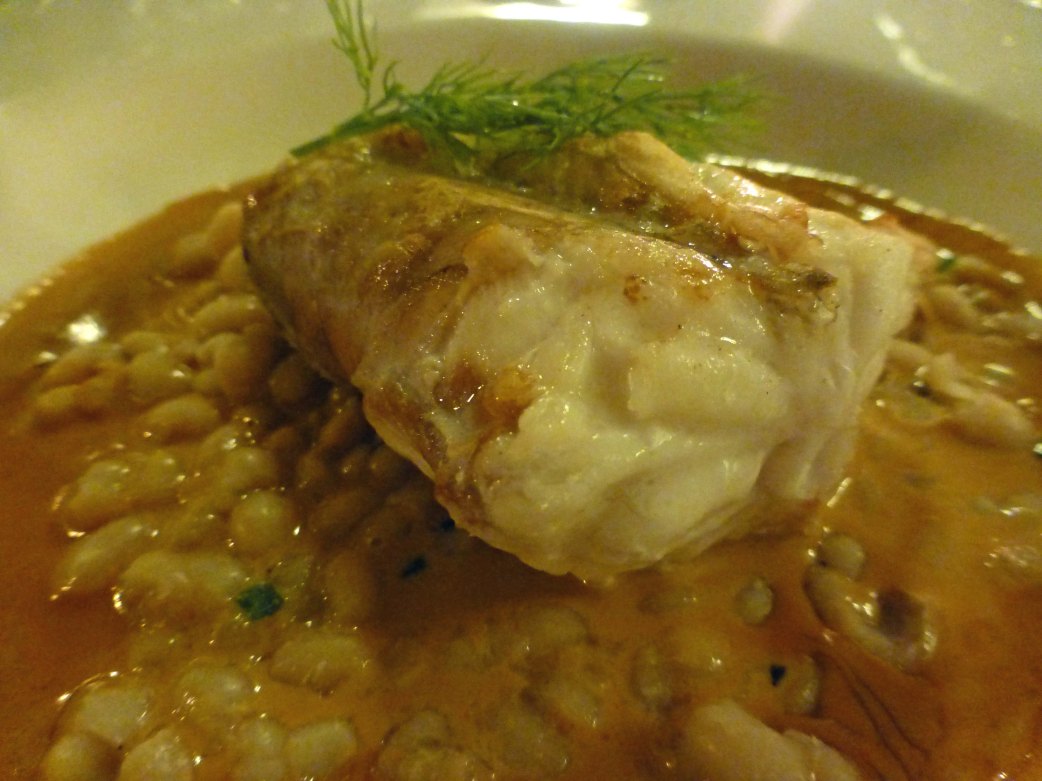 Now it was time for the fish course: Roasted Monkfish on the bone, Mussels, Coco de Paimpol, Armorique bisque. What a superb dish. The perfectly cooked fish, the creamy beans and the rich lobster sauce. Wow!
Now it was time for the fish course: Roasted Monkfish on the bone, Mussels, Coco de Paimpol, Armorique bisque. What a superb dish. The perfectly cooked fish, the creamy beans and the rich lobster sauce. Wow!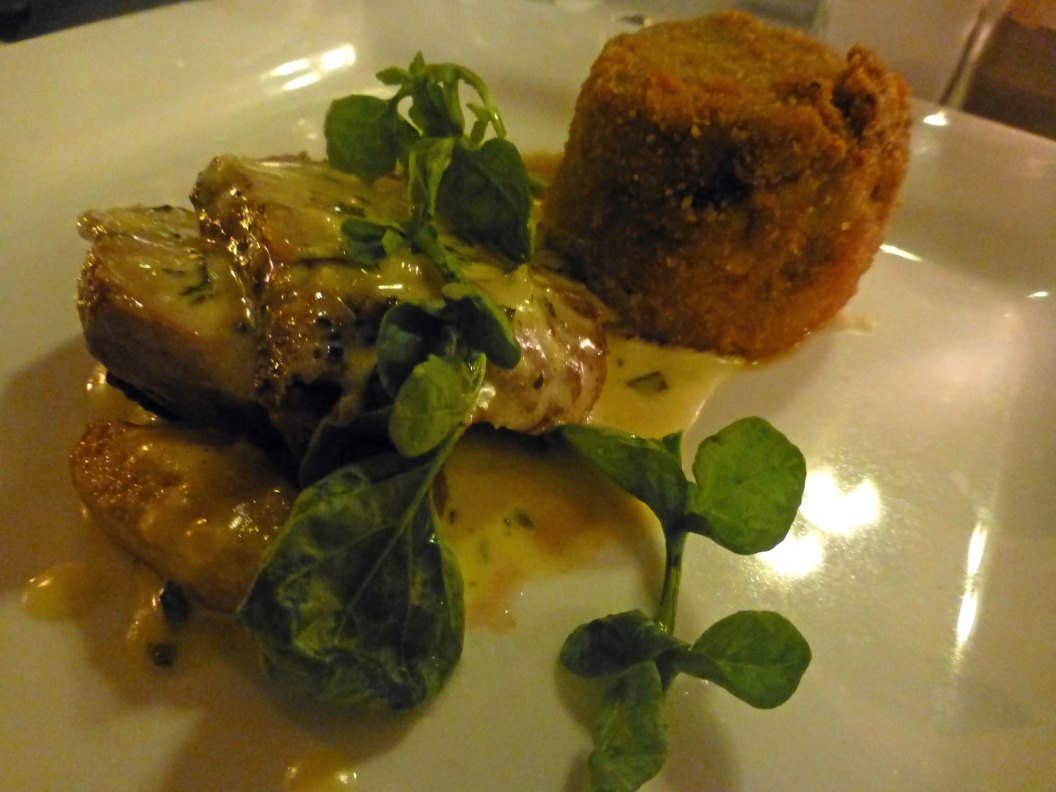 And more richness to follow as the meat arrived: Duo of Irish lamb, rump and croquette, sel de Guerande, sauce Paloise, Jerusalem artichoke two ways. The Paloise is exactly the same as Béarnaise but you use tarragon instead of mint and the salt comes from near the small walled town of Guerande in the south coast of Brittany. Again, it all came together so well.
And more richness to follow as the meat arrived: Duo of Irish lamb, rump and croquette, sel de Guerande, sauce Paloise, Jerusalem artichoke two ways. The Paloise is exactly the same as Béarnaise but you use tarragon instead of mint and the salt comes from near the small walled town of Guerande in the south coast of Brittany. Again, it all came together so well.